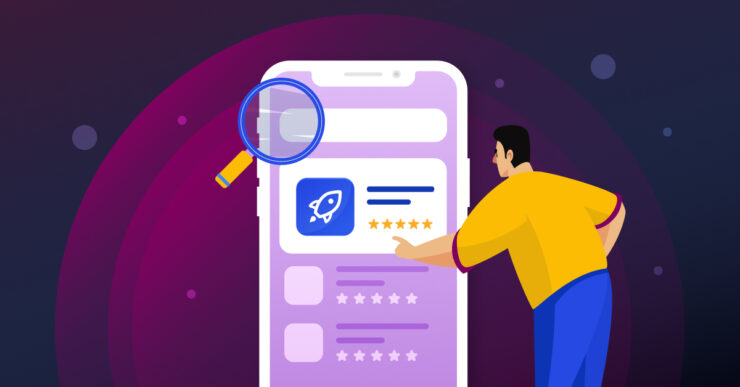SEO optimization plays a key role in indexing your app on Google Play. The higher your ranking in search results, the more users will see it, which, in turn, will increase the number of installations.
On average, there are 103 app installations per user on Google Play according to Data.ai, so there’s always a chance to make it to the TOP for your desired keyword.
In this article, we will look at all the factors that Google Play uses to rank applications, as well as provide practical tips for optimizing your app for search results.
1. Textual Elements:
- Title: Google Play places significant emphasis on the title of your app. Ensure it includes relevant keywords that people will use when searching for your app.
- Description: Your app’s description should be concise, substantial, and informative. Incorporate all key features and benefits of your app.
- Keywords: Google Play allows developers to specify up to 5 keywords that will not be visible to users. These words will be used by Google Play to determine the relevance of your app to search queries.
- Short Text: The short text is a brief description of your app that appears in search results. It should be compelling and motivate users to install your app.
2. Visual Elements:
- Icon: The icon of your app is the first thing users see, so it must be attractive and memorable.
- Screenshots: The screenshots of your app should be high-quality and showcase its key features.
- Video: A video is an excellent way to demonstrate your app’s capabilities and engage users. For tips on optimizing your video, you can read our article via the link.
3. Technical Factors:
- App Size: Google Play favors apps that have a small size.
- Performance Speed: Google Play wants apps to operate quickly and smoothly.
- Stability: Google Play dislikes apps that frequently crash or freeze.
4. Reviews and Ratings:
- Number of Reviews: The more reviews your app has, the higher it will rank in search results.
- Average Rating: Google Play considers the average rating of your app in its ranking.
- Quality of Reviews: Google Play favors quality reviews that provide useful information about your app.
5. Localization:
- Translation: Google Play recommends translating the title, description, keywords, and short text of your app into all languages in which it is available.
- Optimization for Local Markets: Google Play allows you to optimize your app for different countries and regions.
6. ASO Tools:
- Google Play Console: Google Play Console offers developers access to tools that can help them optimize their app for search results.
- ASO Services: There are numerous ASO services available that can assist you in optimizing your app for search results.
7. Regular Updates:
Google Play favors apps that are regularly updated.
Updates should include new features, bug fixes, and performance improvements.
8. App Promotion:
- Advertising: You can use advertising to increase the visibility of your app and boost the number of installations.
- Social Media: You can use social media to talk about your app and attract users.
Optimizing your app and its path to the top is an ongoing process. You need to constantly monitor changes in Google Play algorithms and adjust your optimization strategy accordingly.
And a couple more important tips:
- Use Google Search Console tools to understand how Google indexes your app.
- Keep up with Google Play news to stay informed about the latest changes in ranking algorithms.
- Study the experience of other developers who have succeeded in SEO-optimizing their apps.






















